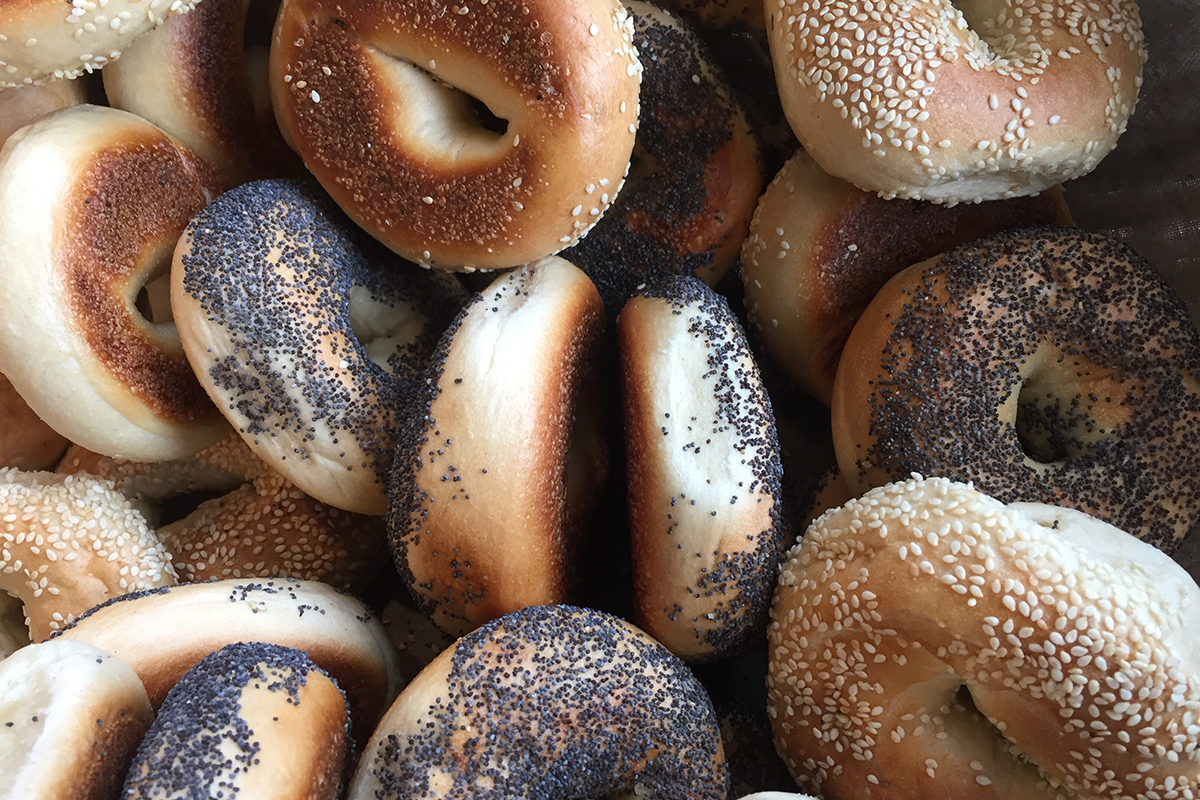Imposter syndrome is a dybbuk that anyone can conjure. For me, it manifested when a Jewish friend imbued something as seemingly mundane as a Reuben sandwich with religious significance. It manifested anytime a fellow congregant or — God forbid — my rabbi used one of the approximately 10 zillion Jewish words that I’d never heard before. On two separate occasions, my announcing distaste for lox made a Jewish acquaintance blanch, and this reaction alone conjured the spirit.
I tried to take it in good stride. I mean, I had decided to convert to Judaism of all faiths, a demographic that’s as cultural as it is religious, so wasn’t I kind of asking for it? Therefore, I took this feeling of otherness on the chin and assumed that mere time and cultural immersion would help me alleviate it.
But that was before — *thunder crash* — the Hanukkah Incident of 2018.
I was visiting my hometown in Florida when it happened. My friend, Mallory, offered to accompany me to a local synagogue for their holiday service. I knew no one in the well-dressed ocean of congregants, and I felt even more alone and small when I couldn’t tell my friend — an evangelical — what the hell all of this singing was even about. My anxiety swelled. But it wasn’t until the post-service oneg in the social hall that it reached critical mass.
I realized that we would eventually have to sit beside strangers at one of the big, round tables that congregants were quickly claiming. Sweat tickled my back, teasing me; it felt like I’d just transferred to a new school halfway through the year after everyone had finished choosing friends. This was paralyzing lunchroom nervousness.
My anxious mind extrapolated the interrogation that would follow:
Dining Companion #1: You’ve never been to a Hanukkah service!? So you’re not Jewish?
Me: Well, erm, kind of….
D.C. #2: Are you a convert?
Me: Again, kind of but it’s a little more—
D.C. #3: Well converts aren’t really Jewish. I mean, I guess I’d concede the rituals help make it somewhat official. Did you do yours with the rabbi here?
Me: Well, no, I actually haven’t done them yet, but —
And that was all it took: This totally imagined dialogue offered me and my petrified tuchus a one-way ticket to Crazyville. The reality of my ignorance — my sheer lack of familiarity with this world around me — seemed to solidify and rise like a tsunami, smashing into me so forcibly that I gripped Mallory’s forearm just to stay standing. I told her we needed to leave and, like the good friend she is, she graciously walked me out.
I had experienced imposter syndrome before, but this was the first time that it had driven me to the threshold of a panic attack. I realized then that I couldn’t just wait for a sense of Jewishness to overtake me — I had to search for it.
So, in a Hebraic equivalent of the Rocky training montage, I dove into my studies. I poured over Jewish texts, from the Torah to Maimonides all the way to Anita Diamant. I sang HaMotzi and Kiddush over sweet, discounted challah, and even sweeter Welch’s grape juice. I mixed the haroset and boiled matzah balls for Passover, served the apples and honey for Rosh Hashanah, and formed a blanket fort as my makeshift sukkah in which I read aloud from Ecclesiastes until my voice was hoarse.
All of this observance was actually working: I began to feel less like a liar when I proclaimed my Jewishness to others. Still, there was this pressure I felt. As a trans woman, I’m well-versed in the art of feeling inferior unless I’m trying harder than all the other people around me. Similarly, my fragile sense of Jewishness erodes if I fail to maintain a schedule of observance more zealous than my Jewish friends.
Forgot to light candles for Shabbat? Failure.
Once again pass on watching Fiddler on the Roof? What an absolute schmendrik.
But then I found bagels.
I grew up in the American South, so I was flummoxed when I moved to the Northeast and met New Yorkers who venomously lampooned grocery store bagels. I’d gone my whole life thinking those chewy little rings were totally acceptable. So when I took a baking gig in the summer, I just expected to pay my rent — not to fall in love with an art form. I had rolled pie shells and scooped out fat chocolate chip cookies at a bakery a few years before but this was my first foray into breadmaking.
There’s something magical about bread, the way it really hasn’t changed all that much in its 30,000-year history. When the taste of a real bagel finally shook my world, I began studying this process in attempts of mastering it.
And how strange to realize that even when I nursed crushing defeat from having missed observing Shabbat (or some other perfectly reasonable offense), I still manage to feel Jewish enough when I hum along to Ladino love songs while flipping bagels in their boiling bath. When the fruity scent of yeast activating in warm, dark water reaches my nose, I feel content recalling that I’m simply executing the latest iteration in a ritual that spans generations.
At first, I struggled with this. Was it really okay for me — a Jew by choice with no Jewish ancestry — to feel kindred to the long-passed Jews who rolled the first bagels in 17th century Poland? But then I remembered the anticlimactic answer that I always give to those who ask me why I converted: “It just feels right. It feels like home.”
Two baking shifts per week for over six months have helped me hone my skills, but the occasional batch still comes out flat or with air pockets so tumorous that it looks like a tray of inedible art. Nevertheless, these hiccups feel just as Jewish as when the bagels come out plump and textured, steaming bronze.
I am finally ready to do away with my Jewish imposter syndrome by accepting that my brand of Judaism will never be concise and tidy.
And I’m gonna do it with motherfucking bagels.



